Depression
Understanding Depression
Depression is common among people battling an addiction to drugs or alcohol. Substance abuse can trigger or intensify the feelings of loneliness, sadness and hopelessness often associated with depression.
An estimated one-third of people with major depression also have an alcohol problem.
While most people will experience highs and lows throughout their life, clinical depression lasts for weeks, months and sometimes even years. It interferes with a person’s entire life, including their ability to work and maintain a healthy lifestyle.
For those struggling with depression who feel there is no end in sight, drugs and alcohol may sometimes appear to be an easy solution to their problems. These substances can temporarily subside any emotional pain and bring about a sense of happiness. However, these substances can become addictive. The more you consume, the more dependent your body will become on their effects. Over time, substance abuse can exacerbate symptoms of depression as well as lead to health problems like brain damage down the road.
Try Online Therapy

Get professional help from an addiction and mental health counselor from BetterHelp by phone, video, or live-chat.
Take the Quiz. Get Matched. Begin Therapy.

Online therapy can help you with long term addiction support. Connect with a therapist from Talkspace anytime, anywhere.
Get matched with a therapist now.
Paid Advertising. We may receive advertising fees if you follow links to promoted online therapy websites.
Understanding Depression
Those with depression face an uphill battle every day. Many elements of depression overlap with the signs of addiction, making it essential that people get the appropriate care and treatment for both disorders.
Both depression and addiction can cause a person to:
- Give up social activities or hobbies
- Refuse to acknowledge a problem
- Experience issues with personal relationships
- Isolate themselves from other people
For someone suffering from depression, it can be extremely tempting to want to relieve these feelings with drugs or alcohol. Ultimately, though, abusing substances to ease depression can cause even more harm to an individual’s life – from financial troubles to personal hardships.
Featured Centers Offering Depression And Addiction Treatment


Most Common Types Of Depression
-
Major Depression
One of the most common types of depression, major depression affects roughly 7% of the nation’s population at any given time.
Symptoms for this type of depression include extreme sadness, lack of energy, irritability and changes in sleeping patterns that usually last for more than two weeks.
If left untreated, major depression can recur throughout someone’s life.
-
Dysthymia
A milder form of depression, people with dysthymia suffer from a continuous “gloomy mood” that lasts for more than 1 to 2 years.
Substance abuse may mask these negative emotions in the short-term, but it can drastically disrupt a person’s relationships, work and daily activities later on.
Since dysthymia is a chronic condition, it may eventually lead to major depression.
-
Seasonal Affective Disorder
Generally occurring in the wintertime, Seasonal Affective Disorder (SAD) is a type of depression associated with variations of light.
People with this type of depression may experience anxiety, mood changes, overeating and sleep problems.
In order to diagnose SAD, someone must exhibit these symptoms over 3 consecutive winters.
-
Atypical Depression
With atypical depression, an individual experiences symptoms of depression; however, their mood is briefly uplifted with the news of a positive event.
However, during the “low” periods, depression can become so severe that people feel as though life is not worth living.
Using alcohol or other addictive substances to self-medicate atypical depression can result in detrimental emotional and behavioral problems.
Looking for a place to start?
Join the thousands of people that have called a treatment provider for rehab information.
Free and confidential
Available 24/7
Access to professional treatment
Depression Symptoms
The symptoms of depression vary depending on the type. A co-occurring addiction to alcohol or other substances may increase the severity of these symptoms.
People suffering from depression have approximately a 10% lifetime suicide risk. When combined with substance abuse, the suicide risk rises to about 25%.
Common Symptoms Of Depression
- Loss of interest in work, hobbies, and personal goals
- Feeling useless, hopeless, and pessimistic
- Irritability
- Trouble concentrating
- Problems sleeping
- Changes in appetite and weight
The majority of those facing depression may experience one or more of these common symptoms at some point in their life. However, for people with severe types of depression, symptoms can be extremely dangerous, or even life-threatening.
Symptoms Of Severe Depression
- Thoughts of suicide
- Hallucinations or delusions
- Reckless behavior
- Using drugs or alcohol to cope with depression
If you experience any signs of depression, get the help you need by contacting a treatment provider today.
Diagnosing Depression
There are several ways that doctors diagnose depression. A few tests may be completed in order to pinpoint the type of depression and determine the proper treatment.
-
Physical exam
A doctor completes a physical exam to see if there are any underlying health conditions that may be linked to a patient’s depression. This exam may include a range of physical tests to get a better understanding of an individual’s overall health.
-
Lab tests
Blood tests can eliminate a variety of underlying health conditions that could be contributing to symptoms of depression. For example, a complete blood count or thyroid test will ensure different parts of the body are functioning properly.
-
Psychological evaluation
Doctors or mental health professionals may have patients complete a questionnaire to learn more about their symptoms, thoughts and feelings. The information provided in this evaluation helps doctors form a proper diagnosis and will aid in determining the appropriate treatment.
-
DSM-5
The Diagnostic and Statistical Manual of Mental Disorders (DSM-5) is regularly used by mental health professionals. The criteria listed in this manual helps doctors diagnose mental conditions and is used by insurance companies to reimburse for treatments associated with a condition.
Common Questions About Rehab
Depression And Addiction Treatment Centers
Many factors play a role in deciding on a treatment for depression. Like many other mental health conditions, depression can be managed so individuals go on to live a normal life. Options for treating this condition range from medications and psychotherapy to brain intervention therapies.
Check if my insurance covers rehab
Addiction Center is not affiliated with any insurance.
Depression Medications
Antidepressants are designed to improve the way the brain processes various chemicals that control an individual’s mood. Finding a medication that works best for an individual’s symptoms and has the least amount of side effects can take some time. A doctor may even recommend combining two medications for a short time to increase effectiveness.
Medication is often effective in helping those with depression. Some of the most commonly prescribed Antidepressants may include:
- Selective serotonin reuptake inhibitors (SSRIs)
- Atypical Antidepressants
- Tricyclic Antidepressants
- Monoamine Oxidase Inhibitors (MAOIs)
As with many other prescription medications, Antidepressants may be addictive. If you are suffering from co-occurring depression and addiction, make sure your doctor knows. He or she can work with you to find the right treatment plan, even if that means avoiding pharmaceutical medications. All parts of your health are important, including your ability to stay sober as you heal from past hurts from addiction and depression.
Get Help For A Dual Diagnosis
Without proper treatment for a dual diagnosis like depression and addiction, the conditions may continue to recur and impact your quality of life. Click here to discover available online therapy options.
Try Online Therapy

Get professional help from an addiction and mental health counselor from BetterHelp by phone, video, or live-chat.
Take the Quiz. Get Matched. Begin Therapy.

Online therapy can help you with long term addiction support. Connect with a therapist from Talkspace anytime, anywhere.
Get matched with a therapist now.

Begin making positive changes with Online-Therapy.com. Quality online therapy, from the comfort of home.
Answer a few questions to get started.
Paid Advertising. We may receive advertising fees if you follow links to promoted online therapy websites.
Published:
Author
Jeffrey Juergens

-
Jeffrey Juergens earned his Bachelor’s and Juris Doctor from the University of Florida. Jeffrey’s desire to help others led him to focus on economic and social development and policy making. After graduation, he decided to pursue his passion of writing and editing. Jeffrey’s mission is to educate and inform the public on addiction issues and help those in need of treatment find the best option for them.
- More from Jeffrey Juergens
Reviewed by Certified Addiction Professional:
David Hampton

A survivor of addiction himself, David Hampton is a Certified Professional Recovery Coach (CPRC) and a member of the National Association of Alcohol and Drug Abuse Counselors (NAADAC).
- More from David Hampton
Sources


Recovery Starts Today
Call Now For Addiction Support
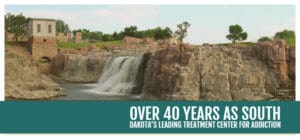


Newport Institute for Young Adults
Monticello , MN


Recovery Centers of America at St. Charles
St. Charles , IL

Newport Academy – Teen Treatment Center
Saint Cloud , MN

Banyan Treatment Centers – Chicago
Chicago , IL

Timberline Knolls Treatment Center for Women
Lemont , IL
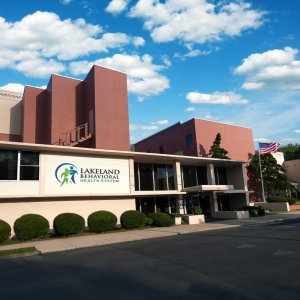
Lakeland Behavioral Health System
Springfield , MO

Banyan Treatment Centers – Illinois
Gilman , IL

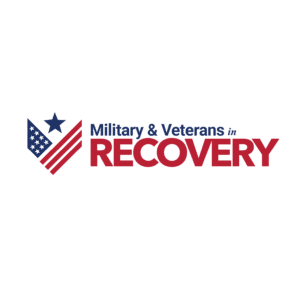
Military & Veterans in Recovery – Banyan Treatment
,

Recovery Centers of America at Indianapolis
Indianapolis , IN

Boca Recovery Center – Indiana
Bloomington , IN
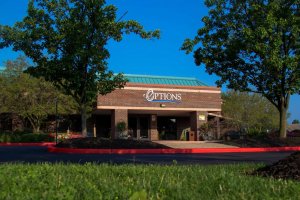
Options Behavioral Health Hospital
Indianapolis , IN
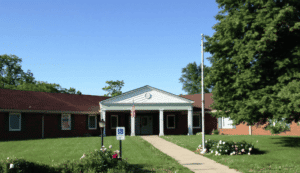
Ridgeview Behavioral Hospital
Middle Point , OH